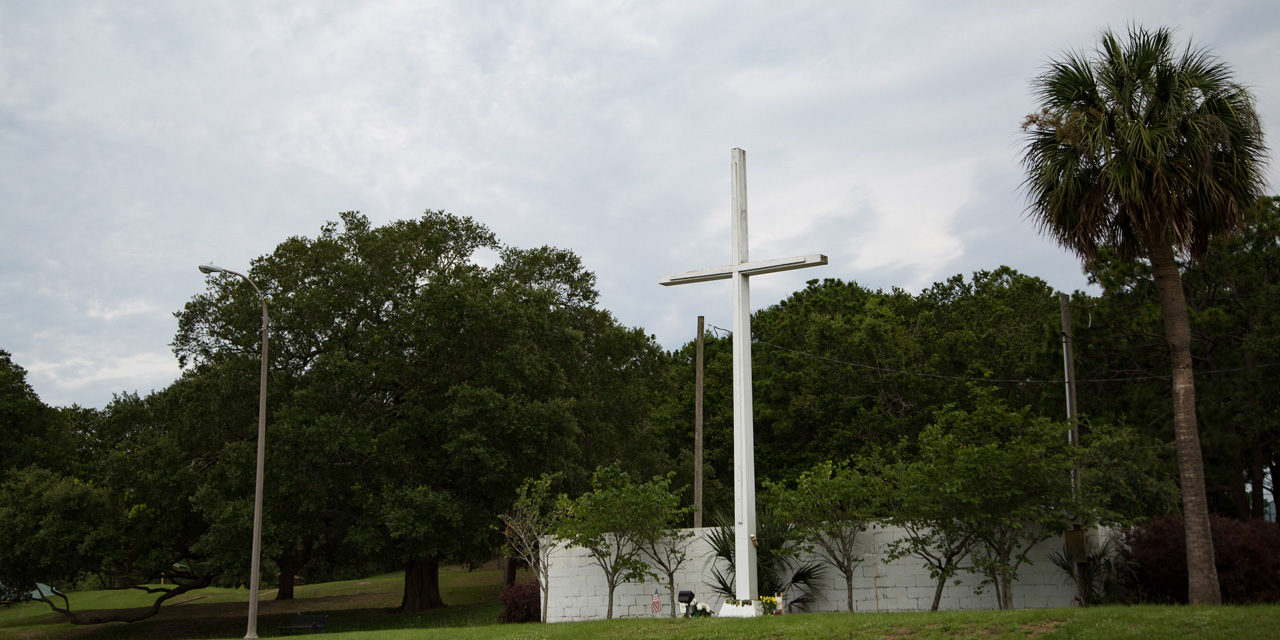Bayview Park in Pensacola, Florida is an idyllic 28-acre public space filled with a senior center, an amphitheater, two dog parks, tennis courts, trails, boating, picnic areas, and, well, you get the picture.
In one corner of the park is the Bayview Cross (aka the Pensacola Cross), erected in 1941 by the Jaycees, a nonprofit civic group, to unite the community just months before the U.S. entered World War II. Citizens have held various community events at the monument, including sunrise services, Veterans Day and Memorial Day remembrances and many others, both religious and nonreligious.
Seventy years later, in 2016, the American Humanist Association filed a federal lawsuit to force the removal of the cross because some of its members were “offended” by its religious connotations. They charged that the cross’s location on public land along with city-provided maintenance violated the “separation of church and state.”
The federal district court that first heard the case agreed with the Humanists and declared the monument’s location on public property and upkeep by the city to be unconstitutional under the First Amendment. The 11th U.S. Circuit Court of Appeals agreed, and Pensacola appealed to the U.S. Supreme Court.
But a funny thing happened on the way to the Supreme Court. While the city’s petition with the high court was pending in 2019, the justices decided the Bladensburg Cross case out of Maryland, titled American Legion v. American Humanist Association. That case involved details quite similar to the Pensacola Cross facts, e.g., a monument in the shape of a cross, sitting on public land without controversy for decades, only to be recently challenged by atheists who were offended by it.
The Supreme Court upheld the Bladensburg Cross’s constitutionality in a 7-2 opinion (Justices Ginsburg and Sotomayor dissented) that relied heavily on the monument’s history and tradition as support for ruling that it did not violate the First Amendment’s prohibition of the establishment of religion. That decision declared that such monuments have a “presumption of constitutionality.”
The very next thing the justices did was send the Pensacola Cross case back to the 11th Circuit to reconsider its earlier decision in light of what the high court ruled in the Bladensburg Cross case.
The 11th Circuit, applying Bladensburg’s reasoning, reversed its earlier ruling and declared that the cross’s presence on public land did not offend the Constitution.
Hopefully, this victory will be the beginning of the end for the Left’s relentless pursuit of scrubbing the public square of any vestige of religious images. Our nation’s history cannot be viewed accurately without a religious lens that ties much of it together.
The case is Kondrat’yev v. City of Pensacola.
Photo from Becket Fund






